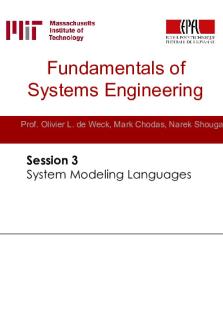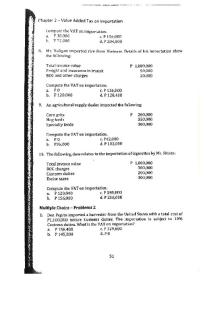IC105 Lecture 4 Notes 3 of 3 PDF

| Title | IC105 Lecture 4 Notes 3 of 3 |
|---|---|
| Course | Ethics in Investment Management |
| Institution | University of Reading |
| Pages | 2 |
| File Size | 123.2 KB |
| File Type | |
| Total Downloads | 95 |
| Total Views | 136 |
Summary
Whistleblowing including; definition, regulations and laws, benefits and obstacles and case study of Martin Woods....
Description
IC105 Lecture 4 Notes (3/3)
Whistleblowing -
-
A whistleblower is a worker who reveals specific forms of wrongdoing (to a regulator) – frequently buy no necessarily related to misconduct they witness at work – and when the reported wrongdoing is in the public interest, i.e. it must have an impact on others, such as the general public. o Wrongdoings include: criminal offense, danger to health/safety/environment, breaking the law o Wrongdoings do not include: personal grievances (such as bullying, harassment, discrimination) Significant cases of whistleblowing: Cynthia Cooper (Worldcom), Sherron Watkins (Enron) Legal environment (UK): o Public Interest Disclosure Act 1996 gives whilstleblowers legal protection o Specific UK financial services legislation: ▪ Requirement to develop whistleblowing procedures ▪ Individual in the role of ‘controlled function’ which is approved by the FCA who, if necessary, has the obligation to whistleblow both ‘internally’ in the firm and ‘externally’ to the regulator
Whistleblowing – benefits and obstacles “Whistleblowers play an important role in exposing poor practice in firms and they have in the past few years contributed intelligence crucial to action taken against firms and individuals. It is in the interests of the industry and regulators alike that wrongdoing is identified and addressed promptly.” (Tracey McDermott, acting chief executive of the FCA, 2015) “As organisations increase in complexity, whistleblowing by employees may be the only way to uncover organizational wrongdoing.” (Miceli et al., 2008) Obstacles to whistleblowing (to regulators): -
-
High dangers to whistleblowers, such as job loss and trouble finding new work in the industry, verbal abuse, or resource blocking – despite the fact that whistleblowers are legally protected from being treated unfairly after blowing the whistle Regulators may be understaffed or unaware of the strategic importance of whistleblowing, leading to inaction Regulators may also be under political pressure to ignore whistleblowing
Whistleblowing – the case of Martin Woods Experience of Martin Woods, Whistleblower at Wachovia bank regarding money laundering: “When I blew the whistle, the Financial Services Authority (FSA) told me I would never work for the bank again and it took me a long time to recover my status as an approved person. In early 2012, the FSA sanctioned two individuals for their failure to comply with their reporting requirements. This action did very little to encourage whistleblowing, on the contrary, these two men were fortunate and in the long-term the outcome for them was far more positive than it ordinarily is for whistleblowers. “The whistleblower is almost always outnumbered, outmanoeuvred and invariably outlawyered. In the majority of instances, whistleblowers act alone, it is not that other people do not see what the whistleblower sees, rather they see it, but decide to do nothing about it. “I believe that one of the difficulties of blowing the whistle in a bank is that in parallel, the individual doing so is also blowing the whistle against the FSA.” ▪
Public Concern at Work (2016) “Whistleblowing: Time for Change”...
Similar Free PDFs

IC105 Lecture 4 Notes 3 of 3
- 2 Pages

Chapter 3 & 4 - Lecture notes 3-4
- 10 Pages

4 - Lecture notes 3
- 1 Pages

Lecture 3 + 4 notes
- 16 Pages

3-4 Treaties - Lecture notes 3-4
- 7 Pages

3 - Lecture notes 3
- 7 Pages

Quizlet-3 - Lecture notes 4
- 1 Pages

Notes#3 - Lecture 3 notes
- 49 Pages

Lec3+4 - Lecture notes 3-4
- 16 Pages

Lecture notes, lecture 3
- 8 Pages

Lecture notes, lecture 3
- 5 Pages

Lecture notes, lecture 3
- 59 Pages

Chapter 3 - Lecture notes 3
- 1 Pages

Chapter 3 - Lecture notes 3
- 30 Pages
Popular Institutions
- Tinajero National High School - Annex
- Politeknik Caltex Riau
- Yokohama City University
- SGT University
- University of Al-Qadisiyah
- Divine Word College of Vigan
- Techniek College Rotterdam
- Universidade de Santiago
- Universiti Teknologi MARA Cawangan Johor Kampus Pasir Gudang
- Poltekkes Kemenkes Yogyakarta
- Baguio City National High School
- Colegio san marcos
- preparatoria uno
- Centro de Bachillerato Tecnológico Industrial y de Servicios No. 107
- Dalian Maritime University
- Quang Trung Secondary School
- Colegio Tecnológico en Informática
- Corporación Regional de Educación Superior
- Grupo CEDVA
- Dar Al Uloom University
- Centro de Estudios Preuniversitarios de la Universidad Nacional de Ingeniería
- 上智大学
- Aakash International School, Nuna Majara
- San Felipe Neri Catholic School
- Kang Chiao International School - New Taipei City
- Misamis Occidental National High School
- Institución Educativa Escuela Normal Juan Ladrilleros
- Kolehiyo ng Pantukan
- Batanes State College
- Instituto Continental
- Sekolah Menengah Kejuruan Kesehatan Kaltara (Tarakan)
- Colegio de La Inmaculada Concepcion - Cebu

